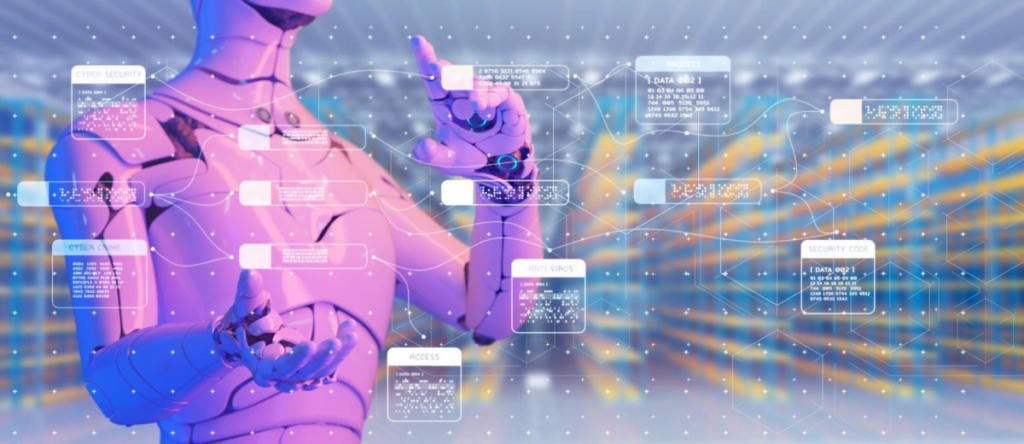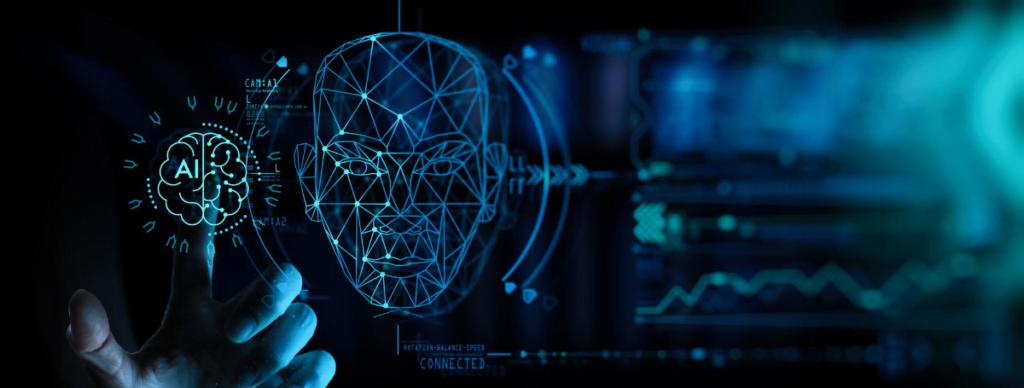Artificial Intelligence, or AI, is quickly becoming an inescapable part of modern life. It’s reshaping industries, changing how we work, and creating new possibilities for innovation and efficiency. While AI has vast potential, it’s essential to understand its intricacies and implications fully. So here are the ten key aspects you need to know about AI:
1. AI is already all around us.
From your smartphone’s voice assistant to the recommended shows on your streaming platform, AI is subtly embedded in our everyday experiences. It has become an invisible conductor, orchestrating various aspects of our digital lives without us even noticing.
2. AI is getting smarter all the time.
AI is not a static field. Thanks to advancements in machine learning and neural networks, AI systems are continuously learning and improving. This ‘learning’ allows them to make more accurate predictions, understand our preferences better, and become more efficient at tasks over time.
3. AI is being used in a wide variety of industries.
AI is transforming a broad spectrum of sectors. In healthcare, it’s enhancing diagnostics and improving patient care. In finance, it’s driving smarter investments through predictive analysis. In education, it’s personalizing learning for better student outcomes. The application of AI is limited only by imagination.

4. AI has the potential to solve some of the world’s biggest problems.
Climate change, disease outbreaks, natural disasters – AI has the potential to tackle these global issues. By analyzing vast datasets, AI can help predict environmental changes, advance medical research, or even manage disaster response, potentially saving lives and resources.
5. AI also has the potential to create new problems.
While AI has immense problem-solving potential, it can also be a source of new challenges. Issues around data privacy, cyber-security, and ethical use are emerging with the rise of AI. Moreover, unchecked use of AI could lead to job displacements and widen social inequality.
6. We need to be careful about how we use AI.
AI is a tool, and like all tools, its impact depends on how we use it. The development and implementation of AI must be regulated and guided by ethical considerations. Transparency, privacy, and fairness must be at the heart of these guidelines to prevent misuse and protect individuals’ rights.
7. AI is still in its early stages of development.
Despite its pervasive usage, we are still at the beginning of the AI revolution. AI technology continues to evolve, with research and development pushing the boundaries of what AI can do. The future is likely to see AI systems becoming more sophisticated and integrated into even more aspects of our lives.

8. We don’t know all the potential risks of AI.
AI is a complex, evolving field, and as it advances, it may present risks we cannot yet foresee. As AI systems grow more sophisticated and autonomous, they could become harder to control or predict, leading to unexpected outcomes. This uncertainty underscores the need for ongoing monitoring and regulation.
9. We need to start thinking about the ethics of AI.
AI raises profound ethical questions. Who is responsible when an AI system makes a mistake? How do we ensure AI systems are unbiased? How do we protect privacy in an age of AI-powered surveillance? These are some of the ethical dilemmas we need to address as a society.
10. AI is a powerful technology that has the potential to change the world.
Despite the challenges and uncertainties, there’s no doubt that AI is one of the most transformative technologies of our time. It holds the potential to drastically reshape societies, economies, and life as we know it.
Conclusion
In conclusion, the potential of AI is vast and transformative, poised to transform numerous aspects of our lives and society. Its potential to solve pressing global issues and improve day-to-day conveniences is unparalleled, but the rapid advancements also bring forward complex challenges.
Questions around data privacy, ethical use, and the potential impact on job markets necessitate careful navigation of the AI landscape. These complexities highlight the need for understanding beyond the technological – a need to grasp the social, ethical, and legal implications AI presents.
Navigating this transition will require concerted efforts from policymakers, educators, businesses, and individuals alike. It’s essential to ensure that AI’s benefits reach all layers of society, promoting equality, respect for human rights, and overall societal benefit. As we embrace this paradigm shift, we have the opportunity to use AI as a tool to unlock human potential, spur innovation, and ensure prosperity.
This journey into the AI era is a shared one, and by fostering robust dialogue and careful regulation, we can shape a future where AI serves our highest aspirations.




